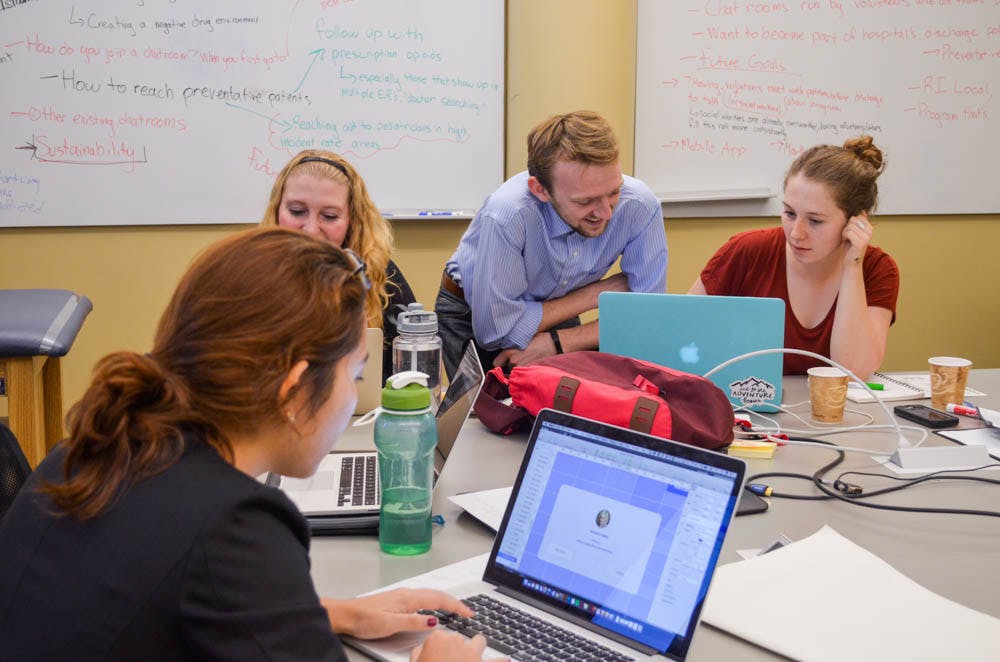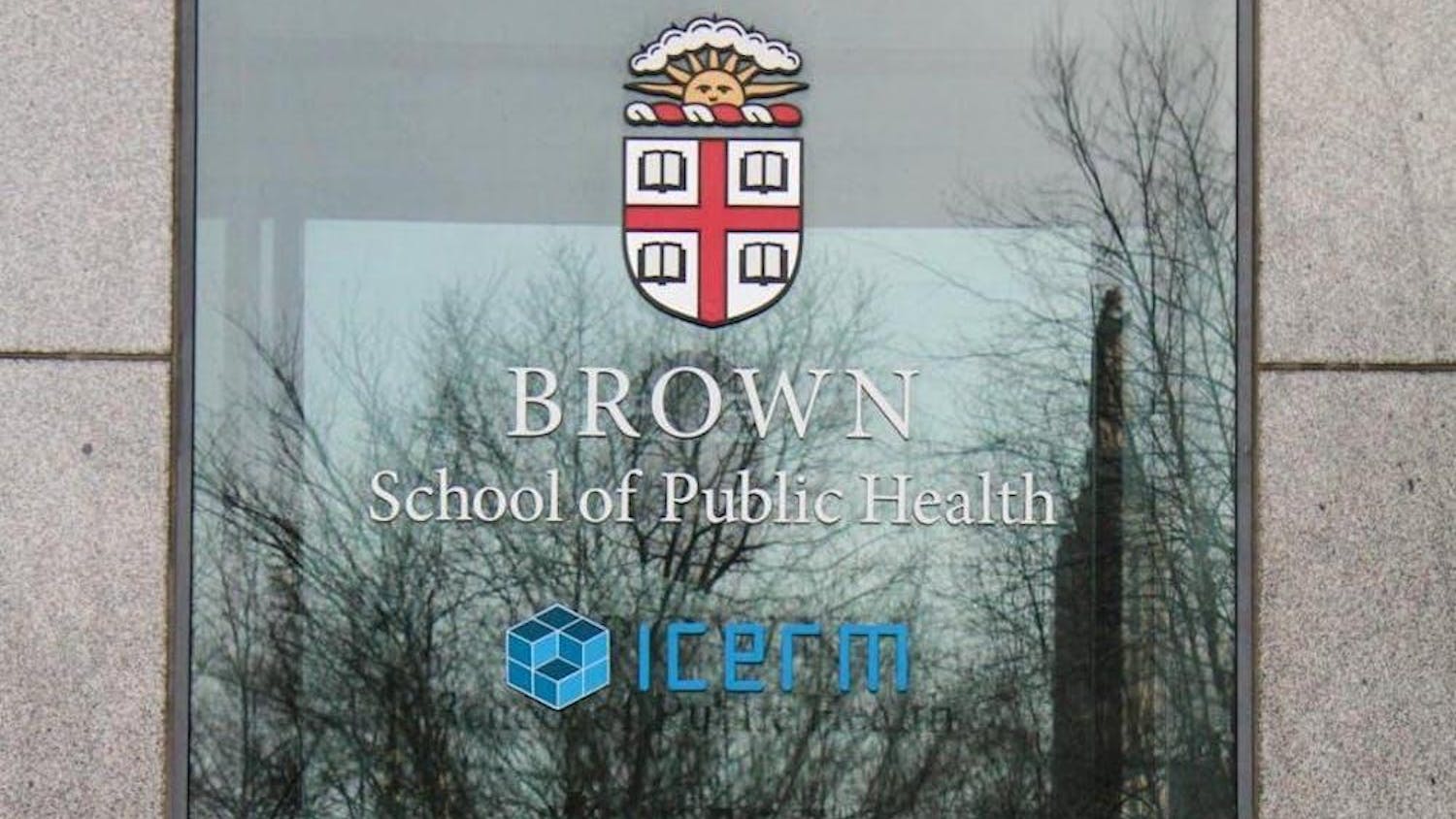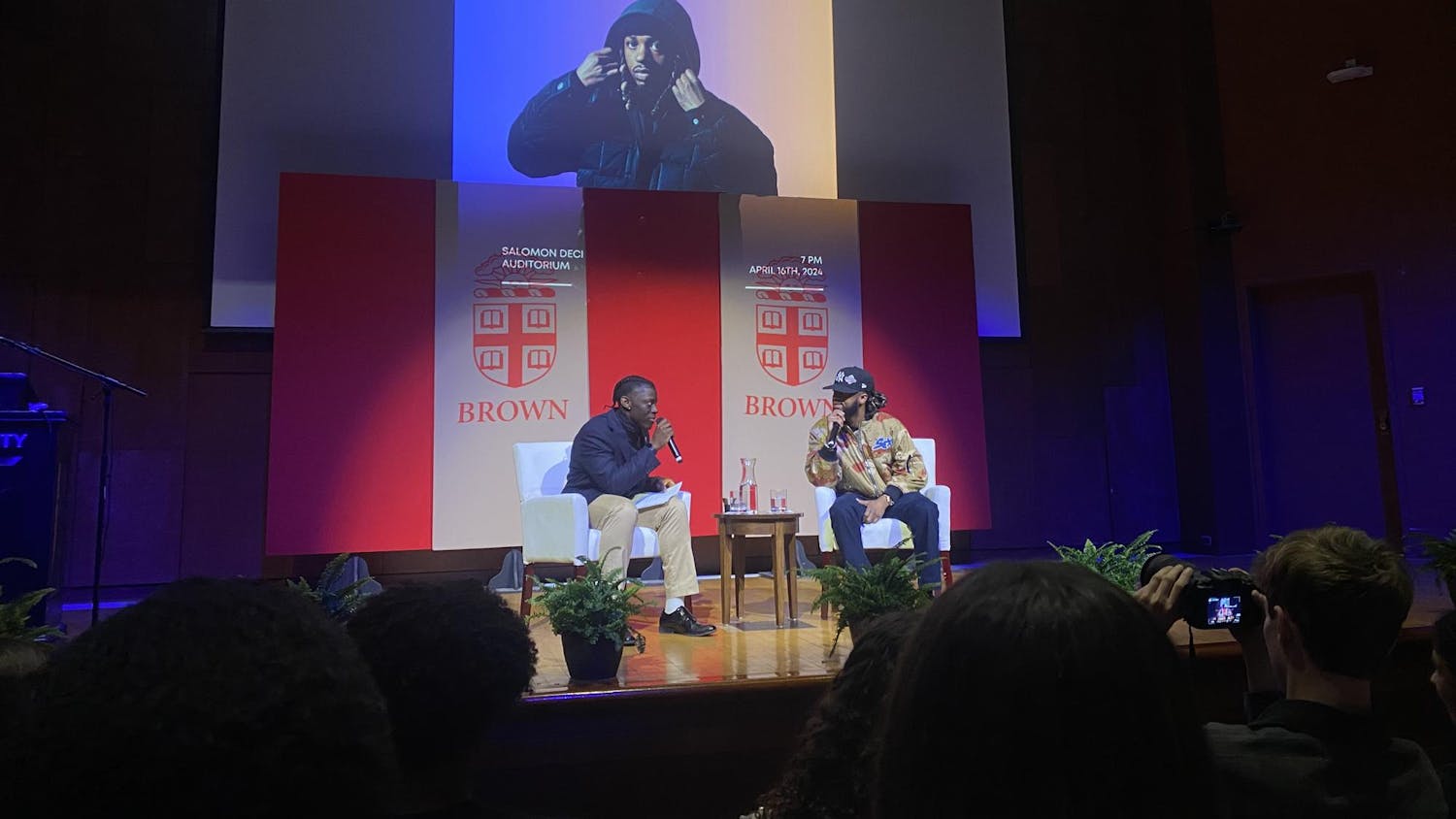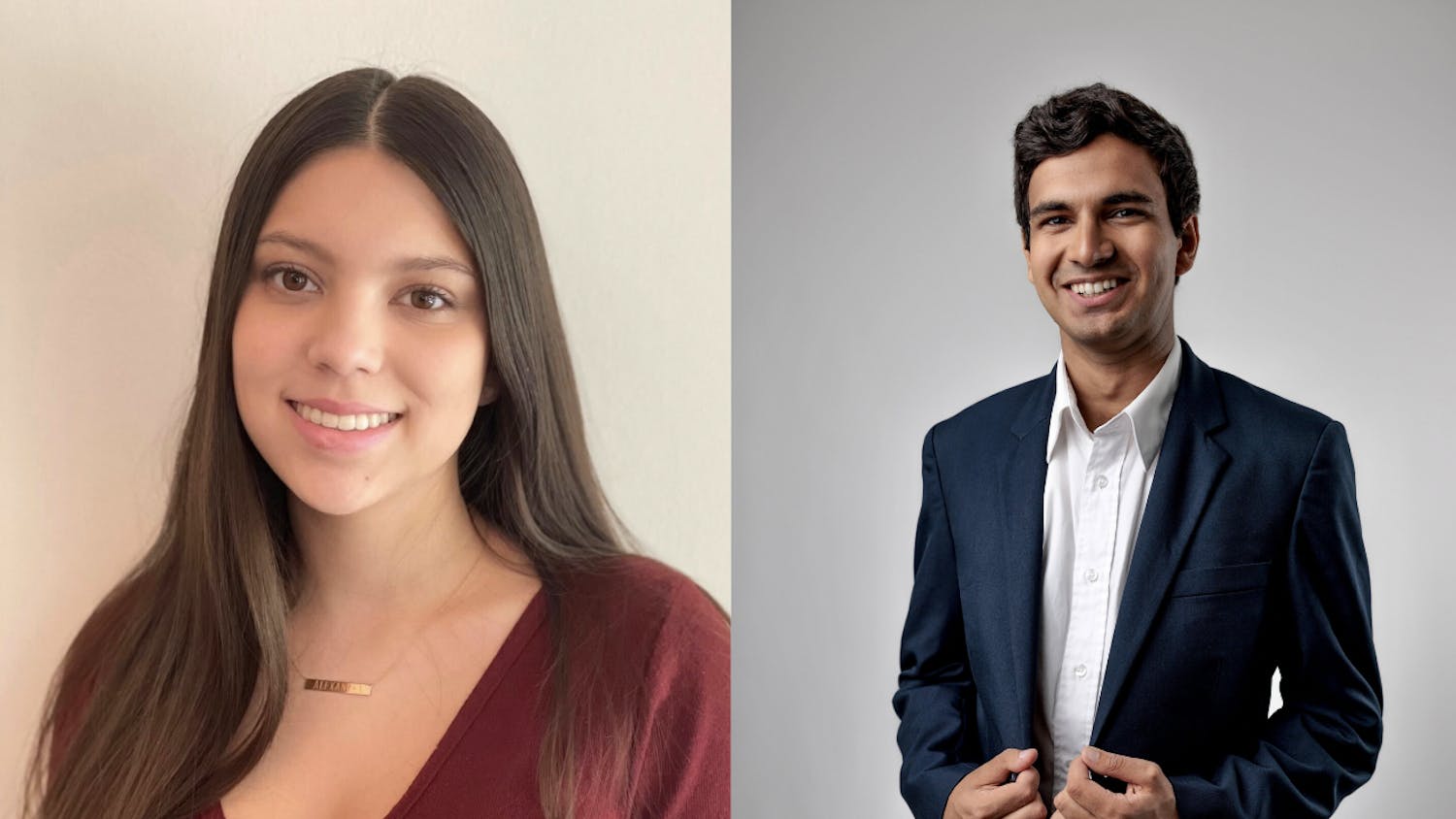A buzz of innovation and activity characterized this year’s Brown Hack Health, a hackathon in which teams gathered to develop implements for progress in the fields of medicine and healthcare. With a theme of “Reducing Health Disparities,” Hack Health’s second run furthered its mission of creating solutions for national and global issues.
Hack Health co-president Elizabeth Carlson ’19 said the goal of the event was “to bring Brown students and other students from the New England area to think about the intersection between health and technology.”
Held at the Warren Alpert Medical School, the interdisciplinary hackathon garnered over 100 participants, who brought skills ranging from computer science to visual arts. “We get some really great solutions that could possibly help out and be used in the future,” Carlson said.
Some participants felt that their different skill sets allowed for a greater group dynamic. “Half our team is computer science-focused, and the other is more public health, bio-med,” said participant Neha Reddy ’21, adding that, despite the different backgrounds involved, the members of the team “complement each other.” Neha’s teammate, Ana Lucia Espinosa Dice ’20, noted that it was “really beautiful to watch the STEM field and the technology and business industries bleed into the public health world.”
Rajiv Kumar ’05 MD’11, president and chief medical officer of Virgin Pulse, was invited to be the keynote speaker of the event. Kumar was also a co-founder and CEO of Shape-Up, a wellness company focused on social connection and employee health. In his keynote address, Kumar shared his experience in business, technology and public health, telling participants that “digital health offers an opportunity to change lives.”
Throughout his speech, Kumar reminded the hackathon’s participants to be patient and realistic. “Focus on your outcomes,” Kumar advised the audience as they began to prepare for Hack Health.
Kumar left participants with an encouraging thought: “One thing got us up and going every day. It was that we actually had an impact on people’s lives.” With that, participants were sent off to try their hand at developing their own solutions.
After numerous pitch presentations and hack sessions, Hack Health wrapped up in an awards presentation ceremony. The panel of judges brought together a range of experts including Executive Director of MedMates Carol Malysz, Associate Dean for Medical Education at the Medical School Allan Tunkel and Director of the Center for Biomedical informatics Neil Sarkar.
Awards were given out to the top three teams. The first prize of $1,000 went to GrowUPS, a team that focused on “prosthetic sockets” that could be customized for patients with above-knee amputations. GrowUPS team member Alex Lo ’18 said that their project aims to increase access to prosthetics among low-income patients, particularly those in developing countries. The runner-up was Directed Step, which worked on a prosthetic alignment device. The third place award went to SimpleIR, which used infrared technology to ease the process of venous and arterial blood draws.
The Hack Health team also introduced new awards for this year’s competition: The Brown Center of Biomedical Engineering awarded a prize to the project that showed the most promise in engineering, and the Swearer Center for Public Service awarded a prize for the project demonstrating potential in public service. The Brown Center of Biomedical Engineering award went to first prize winner GrowUPS, and the Swearer Center award, a $500 prize, was given to REMINDlet, “a wearable, time-dependent, color-changing appointment reminder.”
Though the events of this packed weekend have come to a close, the Hack Health team said they hope that participants’ efforts do not end here. Carlson hopes that “a group will be inspired by this event to then continue on with their project.”
Update, Sept. 18: In a welcome speech to hack-a-thon members, organizers said that 150 students were in attendance. In a message to the Herald, the organizers clarified that closer to 100 students were in attendance. The article has been updated at 1:07 a.m. on Sept. 18 to reflect that.
Correction: A precious version of this article listed Waterline Ventures Managing Director Robbie Greenglass and Associate Professor of Industrial Design at RISD Claudia Rébola as judges. They were not. The Herald regrets the error.





